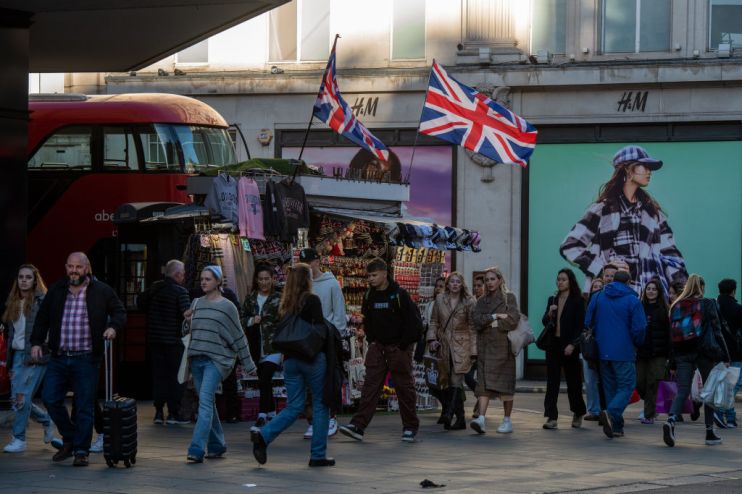UK to officially avoid recession in first half of this year as Bank of England readies twelfth straight interest rate rise

Britain is set to have officially avoided a recession in the first half of this year in a sharp turnaround in fortunes for the country’s economy, figures out this week are expected to reveal.
Gross domestic product (GDP), which measures the amount of goods and services produced in the UK, is anticipated to have risen 0.1 per cent in the first three months of this year.
The data, published by the Office for National Statistics (ONS) on Friday, will, if they show what the City expects, confirm the country dodged the official definition of a recession – two straight quarters of contraction – in the first half of this year.
Driving the output expansion in the first quarter “will be expected gains in household consumption and government spending,” Sanjay Raja, an economist at investment bank Deutsche Bank, said.
Britain’s economy has outperformed projections released at the turn of the year. Bank of England officials reckoned the economy could suffer a drawn-out recession in 2023, as did those at the Office for Budget Responsibility. Those bets have been canned.
Resilient consumer spending and decent business investment have powered GDP away from the depths of those forecasts.
Numbers from S&P Global and CIPS in their purchasing managers’ index out last week showed the services economy, which generates around £2 in £3 in the UK, is functioning at its strongest rate in a year.
In February, the Bank thought GDP would shrink 0.1 per cent in the first quarter, forecasts which it is anticipated to upgrade on Thursday alongside what is also likely to be the twelfth rate rise in a row, probably by 25 basis points to 4.5 per cent.
But economists highlighted strike action that has been a permanent fixture of 2023 so far will have pegged back the economy’s upward trajectory.
“We think the drag from strikes will have offset any strengthening in activity in other sectors, leaving GDP flat in March,” analysts at consultancy Oxford Economics said.
Inflation is still gripping households and businesses, running at 10.1 per cent, a high enough level to lure Bank governor Andrew Bailey and co into another rate rise, analysts reckon.
Pressure on consumer finances is expected to have held back retail sales last month, numbers from the British Retail Consortium and KPMG tomorrow are likely to show.
“With shop price growth at 8.8 per cent year-on-year in April it seems likely that there will be another hefty decline in volumes, even if nominal sales growth remains around current rates,” Japanese investment bank Nomura said.
On the corporate docket this week, online fashion giant and FTSE 250 listed ASOS posts results on Wednesday, while aerospace firm Rolls Royce updates markets on Thursday.
London’s FTSE 100 last week slipped 0.68 per cent to close at 7,778.37 points, dragged lower by a sharp sell off on Wall Street in the middle of the week led by fears over the health of the US banking system reigniting.